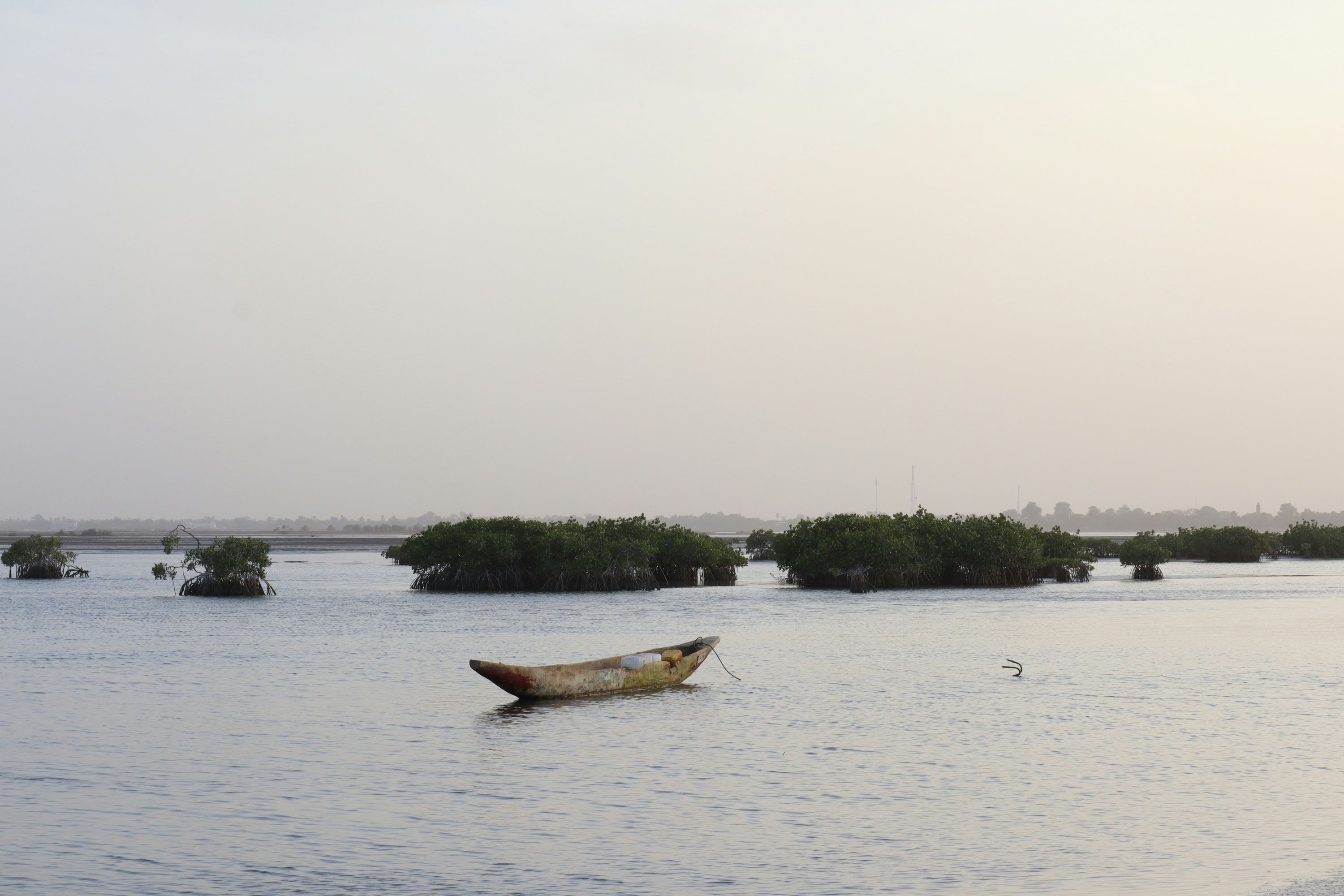How shifting gender norms are shaping migration decisions across Africa

Ahead of International Women’s Day, Omololá Olárìndé explores how changing gender norms are shaping migration decisions in Africa, drawing from interviews with over 150 people in Kenya, Nigeria and Morocco.
Gender relations and norms in Africa are evolving, and this impacts the migration decisions women, but also men, make. For the DYNAMIG project, we carried out interviews with 152 people in Kenya, Nigeria and Morocco who have migrated, are migrating or are considering migration – to explore how people decide whether and how to migrate. As part of this research, we investigated how gender shapes migration plans, experiences and livelihood options. So far, three things stood out to us.
Working abroad is more accepted for African women, but barriers remain
Women across Africa have always played a central role in taking care of their households, often contributing a larger share of their earnings to family support than men do. But there is now also a growing acceptance of women actively competing in paid economic activities, and linked to this, as we found in our study, of women working abroad.
Both men and women we spoke to generally agreed that migration should be a viable option for both sexes, reflecting a shift in gender norms around economic mobility. Several participants in our study reported that women are increasingly entering market-oriented fields, including those traditionally dominated by men, such as sound engineering, ICT, mechanics, plumbing and barbering.
Ouma (not her real name*), a Kenyan woman in her mid-twenties, told us that while working abroad, she saw a woman driving a taxi and a man working as a room service attendant and cleaner, both challenging conventional gender roles. But notable differences persist. For instance, in professional driving jobs, women are more likely to be limited to smaller vehicles.
"While these shifts indicate progress, they do not erase the deep-rooted expectation that women prioritise family responsibilities over economic ones."
While these shifts indicate progress, they do not erase the deep-rooted expectation that women prioritise family responsibilities over economic ones. For instance, Queen, an early-thirties Nigerian woman, had her migration journey cut short due to pregnancy, while Aziza, a Moroccan woman in her mid-twenties who had long aspired to migrate, decided to stay put because of impending marriage.
Many women now believe it’s important to secure a livelihood before getting married. As Milvwodere, a Nigerian woman in her mid-thirties put it: “Men respect women who have money." But even as women push for economic independence, they remain aware of societal pressure surrounding marriage. Ultimately, the challenge of balancing life and work remains deeply gendered.
Younger men, too, face significant familial expectations. Nicholas from Nigeria, in his mid-thirties, told us: “My family expects me to cater for my younger siblings, even though I have an elder brother, who is excused because he is married. They say: ‘What are you doing with your money? You don't have a family’ – as if I don't have a plan."
While African women’s participation in paid labour is increasingly accepted, structural barriers still limit their full economic mobility, especially in migration. Our analysis shows that being a woman reduces the likelihood of aspiring to migrate, yet when considered alongside marital status, single women are more likely to express migration aspirations. Similarly, unmarried men face unique pressures that influence their economic and migration decisions.
This tension between women’s growing participation in market economies and the expectation to prioritise marriage and reproduction underscores the need for migration policies to better address the gendered nature of mobility constraints, as well as their implications for economic agency and reproductive rights.
Governments in both origin and destination countries should promote gender-sensitive agreements, recognising cultural expectations around family and caregiving. Destination countries could offer flexible work permits with re-entry options for family leave, promoting gender inclusion by removing barriers tied to reproductive status. Additionally, strengthening ties with diaspora communities and women’s associations can support returning women’s reintegration into the labour market.
Deep-rooted gender norms heighten vulnerabilities for women who migrate
Migration creates economic and social opportunities, yet societal expectations remain rigid, leading to tensions and vulnerabilities – especially for women. While migration enables women to achieve financial independence, they are expected to adhere to traditional femininity, making them more susceptible to violence and social scrutiny. This tension arises from deep-rooted patriarchal norms that frame female independence as a threat to traditional family structures.
Kamari, a young man who currently lives in Morocco, mentioned this contradiction when we spoke to him. “It’s very different because the woman is alone. And the woman is supposed to remain feminine. It’s absurd, it’s weak. And the woman will be exposed to violence compared to the man.”
This mirrors global trends where women migrants, despite their economic contributions, are often marginalised and subject to gender-based violence. They are expected to embody traditional gender roles even as they assume new responsibilities, placing them in a precarious position where success does not always guarantee social protection.
The shifting relations brought about by migration further complicate these expectations. Niyema from Nigeria, in her early thirties, observed how migration transforms economic agency: “Before they [migrants] left, they didn’t have anything, but now they have many things. They now have a house and business, and they are doing a lot of things.” And Abdul, an early-twenties Nigerian man, acknowledged the difference between local and migrant men: “I am living like a guy, or trying. But they [migrants] will be living like a man, working, getting their money, paying bills and making decisions all alone.”
This highlights how male migrants often gain social status and autonomy through economic success while women face cultural backlash despite similar achievements. It also underscores the shift in power relations that migration offers younger men.
Historically, women were revered in many cultures. Adunni, who works for a Nigerian civil society organisation, noted: “A lot of cultures have female goddesses. The earliest civilisation revered womanhood, revered motherhood. Somehow, it got derailed.”
But economic independence gained through migration does not restore this reverence; instead, women often face exploitation. Sarah, who also works for a Nigerian civil society organisation, told us: “Some of them who took their children’s hand and gave it to a trafficker… all they care about is that this child is gonna bring something. She needs to work and make money to bring.” Such pressures are consistent with research showing that women migrants frequently remit more earnings than men but face heightened social and familial demands.
While migration drives visible societal transformations, norms and institutions have not fully adapted. Women and men explore new opportunities, but their success is shaped by outdated gender expectations. Consequently, while migration can offer women economic liberation, it also exposes them to precarity and gender-based violence.
"We need more evidence collection accompanied by awareness campaigns showcasing the economic and societal contributions of migrant women to challenge these outdated gender norms."
We need more evidence collection accompanied by awareness campaigns showcasing the economic and societal contributions of migrant women to challenge these outdated gender norms. To reduce gender-based violence in the shorter term, labour ministries and international organisations should create more safe reporting mechanisms that protect women migrants from workplace harassment and violence.
Women who migrate face different expectations
The gendered expectations surrounding migration vary significantly across countries and socioeconomic contexts. While some societies see migration as an opportunity for men to provide for their families, women’s migration is often scrutinised more closely, with differing expectations about their roles and contributions.
Hadiza, a woman in her early forties who currently lives in Morocco, described how men’s migration is generally accepted as a means of improving family welfare, whereas women face more skepticism: “In my home country, they automatically ask you the question: ‘What are you going to do?’ And if you can’t say what you’re going to do, automatically, you already get a bad image. But on the other hand, when it’s the man who says he’s going on an adventure, we think he’s going to look for a way to bring his family.”
However, perceptions are not uniform across all contexts. Some respondents argue that women and men who migrate are perceived similarly. Lorna, a late-twenties woman who fled her home country and now lives in Kenya, told us that women who have migrated aren’t perceived differently from migrant men. Richmond, a Nigerian man in his early thirties, instead argued that women who have migrated are doing better than men who have migrated.
Expectations surrounding return migration further reflect these gendered nuances. While migrant men are often expected to return and contribute to their societies, women face additional pressures related to marriage and family obligations. Peluola, from Nigeria, said: “I guess they expect the men to come back and influence their society, and most African families probably don’t want their women to marry from there. So, they also want them to come back and get a husband.”
"While some communities emphasise men’s roles as economic providers and societal influencers, women’s migration is often viewed through the lens of family and marriage."
While some communities emphasise men’s roles as economic providers and societal influencers, women’s migration is often viewed through the lens of family and marriage. As research has shown, remittances and migration patterns can challenge traditional gender norms, leading to shifts in household power dynamics and broader societal attitudes.
National migration strategies that promote diaspora engagement should recognise and leverage women’s transnational economic contributions, ensuring their financial independence is maintained after migration. Legal reforms should ensure that women’s earnings and assets accumulated abroad are legally protected, preventing economic dispossession upon return.
Policies must allow women and men to migrate on equal terms
Ultimately, migration is not just an economic decision – it is a deeply gendered social process. While it creates new opportunities, it also exposes both men and women to vulnerabilities that migration policies must address. If left unexamined, these gendered contradictions could reinforce existing inequalities rather than challenge them. Migration governance must evolve to recognise these shifting dynamics and support a future where both men and women can migrate on equal terms, free from restrictive norms and systemic barriers.
* The interviewees' real names have been modified and ethics procedures were followed throughout the interviews.
Views and opinions expressed are those of the author only and do not necessarily reflect those of the European Union or the European Research Executive Agency (REA). Neither the European Union nor the REA can be held responsible for them.
If you would like to know more or stay informed, please sign up for our newsletter or get in touch via dynamig@ecdpm.org.


